We
have selected a handful of educational policy students to illustrate
the range of interests and strengths of individuals recently
admitted to the program.
Juanita B. Bautista Guerra: I am a Colombian woman who feels privileged to be an Educational Policy PhD student 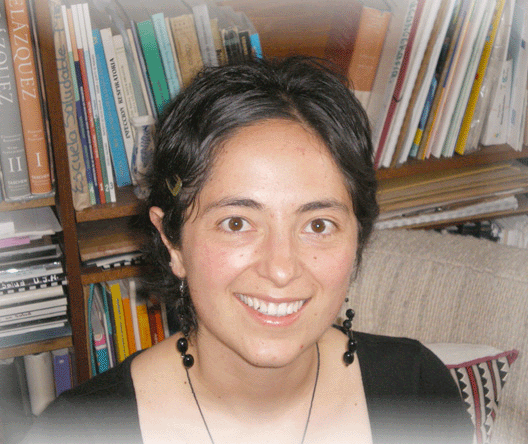 at MSU, supported by a Dean's Scholar Award. While studying to become a lawyer at Universidad de los Andes, I minored in U.S. Studies; the complexities of American society and its role in world affairs have interested me since then. After completing the course work in the Masters Program for Hispano-American Literature at Universidad Javeriana, I worked at Universidad El Bosque, where I also had the opportunity of completing two Specializations: one in Higher Education Teaching and another one in Philosophy of Science. As a Dean’s Scholar, I am interested in the social, philosophical and historical foundations of education; I am also intrigued by the cultural role of education in rural contexts and its function in migratory processes in Colombia.
at MSU, supported by a Dean's Scholar Award. While studying to become a lawyer at Universidad de los Andes, I minored in U.S. Studies; the complexities of American society and its role in world affairs have interested me since then. After completing the course work in the Masters Program for Hispano-American Literature at Universidad Javeriana, I worked at Universidad El Bosque, where I also had the opportunity of completing two Specializations: one in Higher Education Teaching and another one in Philosophy of Science. As a Dean’s Scholar, I am interested in the social, philosophical and historical foundations of education; I am also intrigued by the cultural role of education in rural contexts and its function in migratory processes in Colombia.
Bryan Beverly: As a lifelong Michigan resident, I take pride in the quality of education I received and am passionate about providing similar impactful experiences with students in today's urban schools.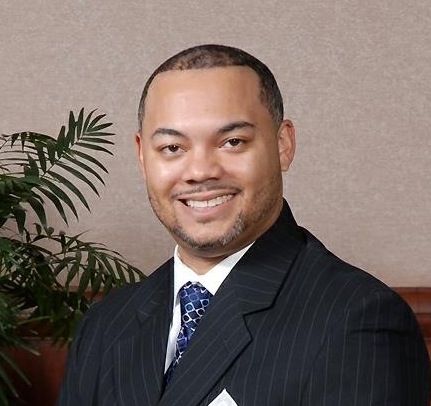 I am an Educational Policy PhD student at MSU and also a Graduate Assistant with the College of Education's Office of K-12 Outreach – where my work is centered on school turnaround efforts and instructional leadership. Prior to returning to MSU for my PhD, I worked as an education consultant for the KRA Corporation and the Lansing School District. My previous professional experiences also include work with the President's Council of State Universities, Michigan; the State of Michigan, Office of the Governor; GEAR-UP, MSU; and the Michigan Association of Counties. I hold a bachelor's degree in Sociology/Anthropology from Olivet College and a master's degree in Higher, Adult, and Lifelong Education Administration from Michigan State University.
I am an Educational Policy PhD student at MSU and also a Graduate Assistant with the College of Education's Office of K-12 Outreach – where my work is centered on school turnaround efforts and instructional leadership. Prior to returning to MSU for my PhD, I worked as an education consultant for the KRA Corporation and the Lansing School District. My previous professional experiences also include work with the President's Council of State Universities, Michigan; the State of Michigan, Office of the Governor; GEAR-UP, MSU; and the Michigan Association of Counties. I hold a bachelor's degree in Sociology/Anthropology from Olivet College and a master's degree in Higher, Adult, and Lifelong Education Administration from Michigan State University.
Alisha Brown: While pursuing my undergraduate Bachelor of Arts Honors degree in psychology with a minor in community rehabilitation 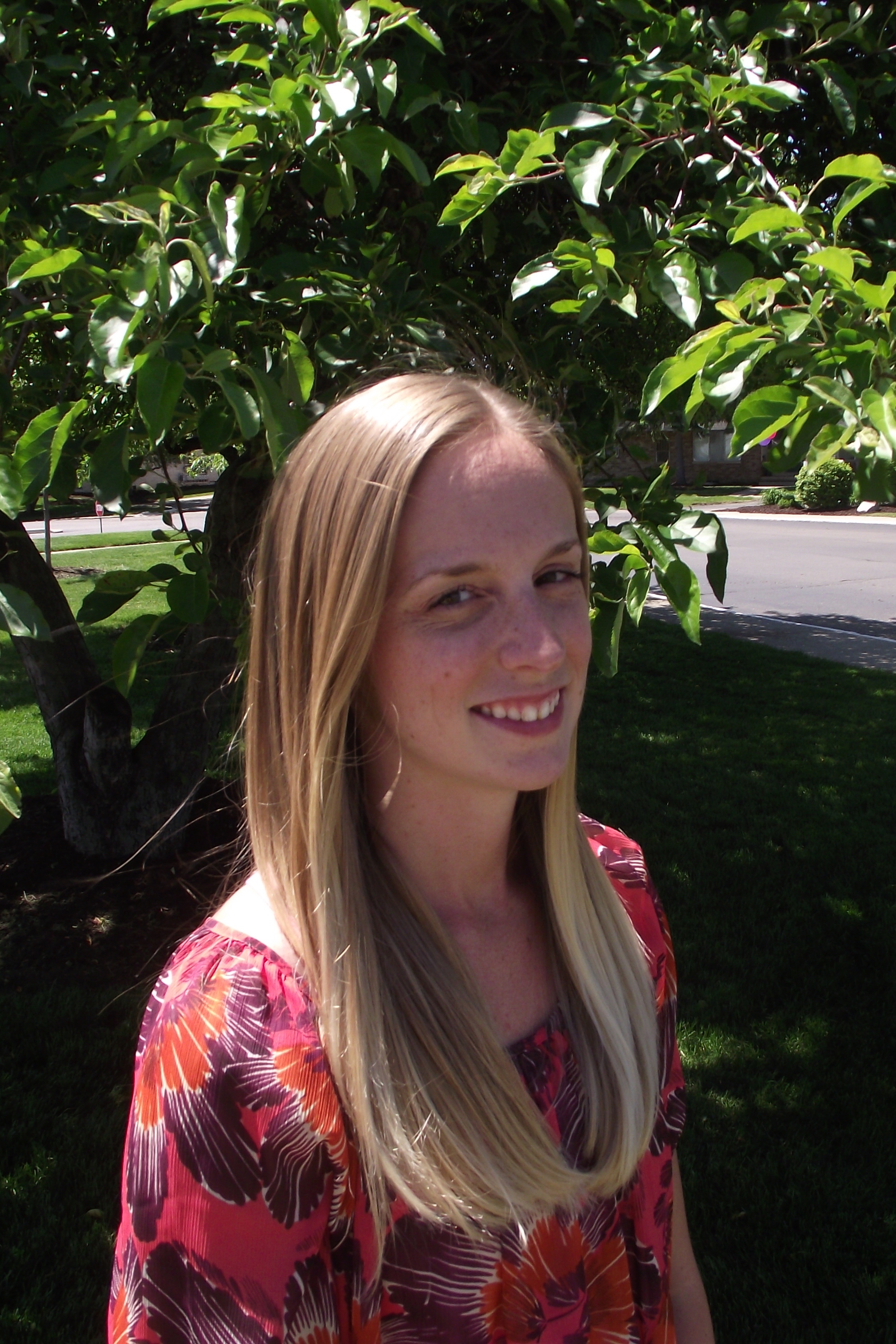 and disability studies at the University of Calgary, I supported children with disabilities in educational settings as a child development facilitator, education assistant, and therapist assistant. Similarly, my Master of Arts program in school psychology at Michigan State University trained me to provide services to facilitate the academic and social development of students who qualify for special education. These experiences shaped my interest in educational policy because I wanted to study the policies governing the educational systems which served the students I was working with. Additionally, being an international student from Canada and my study abroad experiences in South Africa and Botswana have broadened my interests to an international level. I am grateful to be supported as an Erickson Research Fellow, affording me with the opportunity to participate in research projects on access to education for girls and out-of-school children in Tanzania. My research interests include policies and practices associated with inclusive education and access to quality education for students with disabilities and other marginalized groups in domestic and international contexts.
and disability studies at the University of Calgary, I supported children with disabilities in educational settings as a child development facilitator, education assistant, and therapist assistant. Similarly, my Master of Arts program in school psychology at Michigan State University trained me to provide services to facilitate the academic and social development of students who qualify for special education. These experiences shaped my interest in educational policy because I wanted to study the policies governing the educational systems which served the students I was working with. Additionally, being an international student from Canada and my study abroad experiences in South Africa and Botswana have broadened my interests to an international level. I am grateful to be supported as an Erickson Research Fellow, affording me with the opportunity to participate in research projects on access to education for girls and out-of-school children in Tanzania. My research interests include policies and practices associated with inclusive education and access to quality education for students with disabilities and other marginalized groups in domestic and international contexts.
Madhur Chandra: My research focuses on the association between various aspects of teacher working conditions (contextual as well as organizational) and teacher satisfaction across countries. 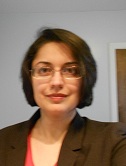 I also examine whether these predictors are similar to or different from those we know to be associated with teacher satisfaction in the United States. My interest in comparative education was sparked early in the program by a summer research fellowship, which enabled me to explore the issue of contract teacher motivation in India. Subsequently, during my internship with the Azim Premji foundation (an organization engaged in bringing about substantive educational change) in Bangalore, India, I visited schools in a very underprivileged community in a rural part of the state of Karnataka. The principals and teachers at those schools spoke eloquently about the resource constraints they face on a daily basis, as well as the challenges they need to overcome to improve educational outcomes for the children in their communities. This experience was instrumental in consolidating my interest in studying equity and educational quality in a comparative context.
As a recipient of a multi-year IES pre-doctoral fellowship in the economics of education, I feel deeply privileged to have the opportunity to work with an extremely productive and supportive faculty.
I also examine whether these predictors are similar to or different from those we know to be associated with teacher satisfaction in the United States. My interest in comparative education was sparked early in the program by a summer research fellowship, which enabled me to explore the issue of contract teacher motivation in India. Subsequently, during my internship with the Azim Premji foundation (an organization engaged in bringing about substantive educational change) in Bangalore, India, I visited schools in a very underprivileged community in a rural part of the state of Karnataka. The principals and teachers at those schools spoke eloquently about the resource constraints they face on a daily basis, as well as the challenges they need to overcome to improve educational outcomes for the children in their communities. This experience was instrumental in consolidating my interest in studying equity and educational quality in a comparative context.
As a recipient of a multi-year IES pre-doctoral fellowship in the economics of education, I feel deeply privileged to have the opportunity to work with an extremely productive and supportive faculty.
Benjamin Creed: During my time in New Orleans, where I earned a B.A. in Philosophy and coached collegiate volleyball both at Tulane University, I had the opportunity to observe classrooms, participate in mentoring and tutoring programs, and assist in the initial cleaning and rebuilding in a post-Katrina city. 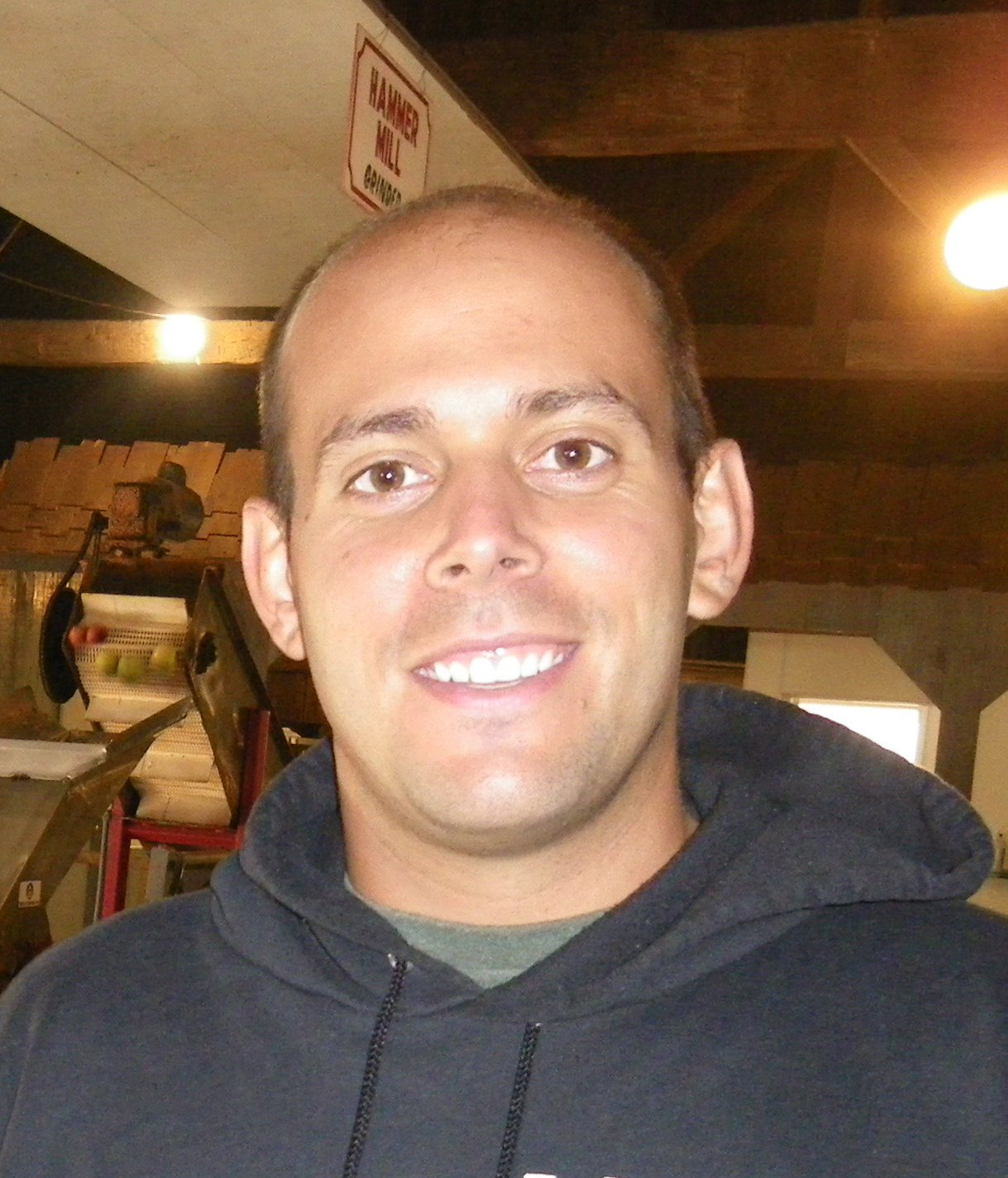 Upon leaving New Orleans, I moved to Chicago where I worked as a one on one and group tutor, as well as a mentor. After three years of living and working in Chicago, I attended Vanderbilt University and received a master's degree in International Education Policy and Management. My decision to pursue international research grew out of my travels, my work in underserved communities, and my belief that education represents a fundamentally important avenue for individual community improvement.
Upon leaving New Orleans, I moved to Chicago where I worked as a one on one and group tutor, as well as a mentor. After three years of living and working in Chicago, I attended Vanderbilt University and received a master's degree in International Education Policy and Management. My decision to pursue international research grew out of my travels, my work in underserved communities, and my belief that education represents a fundamentally important avenue for individual community improvement.
I am a fellow of the Economics of Education Program, funded by IES, and I have had the great fortune of participating in several research projects with Dr. Amita Chudgar. The community at MSU – faculty, staff, and students – has provided me with a great deal of support as I make my way through the doctoral program. My interests are in issues of equity in developing countries and in the development of local actors' capacity in educational policy making.
Charlae Davis: I knew I wanted my career to focus on community organizing within communities of color after receiving my Masters is in Social Work. I worked as a college counselor and later founded an African American mentorship 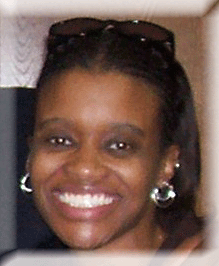 program where I began to realize that non-academic considerations, needed to be addressed before our mentorship program could academically support our youth. It was clear that a holistic approach to supporting our youth, their families and their community was necessary. There continues to be some ambiguity between Policy and Practice and I see endless possibilities when community voices are heard within policy efforts and reform. As a University Distinguished Fellows Recipient, I am interested in designing and working toward the implementation of effective and culturally sensitive policy; partnered with community organizing, as well as holistic supplemental programs within urban/city areas.
program where I began to realize that non-academic considerations, needed to be addressed before our mentorship program could academically support our youth. It was clear that a holistic approach to supporting our youth, their families and their community was necessary. There continues to be some ambiguity between Policy and Practice and I see endless possibilities when community voices are heard within policy efforts and reform. As a University Distinguished Fellows Recipient, I am interested in designing and working toward the implementation of effective and culturally sensitive policy; partnered with community organizing, as well as holistic supplemental programs within urban/city areas.
Laura Holden: I have a background teaching English and English education at the secondary and post-secondary levels. 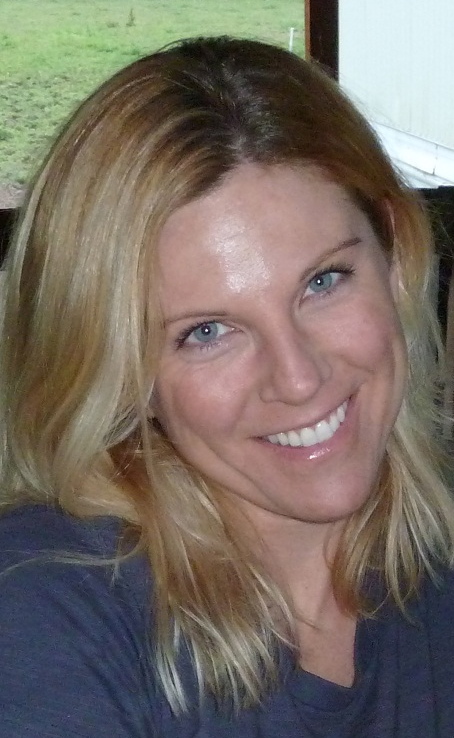 After receiving a BA and an MA in English literature from California State University, Fresno, my thesis being on Virginia Woolf and l'ecriture feminine, I worked for five years as a high school English and creative writing teacher. During this time I was involved with the San Joaquin Valley Writing Project, where I helped develop methods of writing instruction for the secondary level. I then served as a Peace Corps volunteer in Nicaragua, supporting teachers of English as a foreign language and designing workshops on resource development and teacher collaboration. Currently at MSU, I am studying the history of economics in educational policy in the twentieth century, specifically how economic purposes and frameworks were central to the origins of educational policy at the federal level.
After receiving a BA and an MA in English literature from California State University, Fresno, my thesis being on Virginia Woolf and l'ecriture feminine, I worked for five years as a high school English and creative writing teacher. During this time I was involved with the San Joaquin Valley Writing Project, where I helped develop methods of writing instruction for the secondary level. I then served as a Peace Corps volunteer in Nicaragua, supporting teachers of English as a foreign language and designing workshops on resource development and teacher collaboration. Currently at MSU, I am studying the history of economics in educational policy in the twentieth century, specifically how economic purposes and frameworks were central to the origins of educational policy at the federal level.
Tara Kintz: The Educational Policy Program at MSU has provided exceptional support to foster my growth and development as a scholar. My previous experience in a variety of educational settings galvanized my commitment to study educational policy. 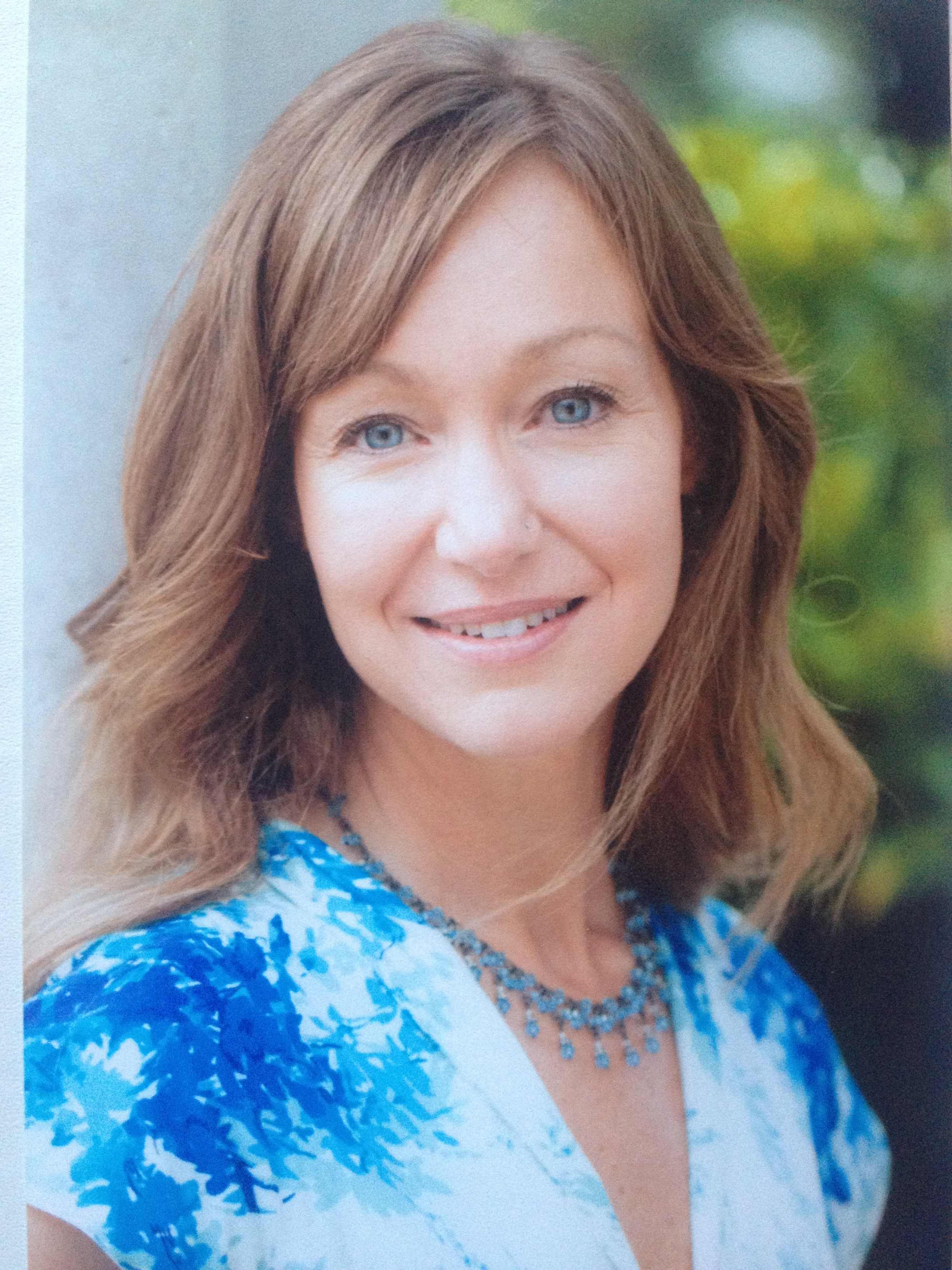 The Educational Policy Program at MSU has provided exceptional support to foster my growth and development as a scholar. My previous experience in a variety of educational settings galvanized my commitment to study educational policy. From implementing service learning programs in the schools of Oakland, California to teaching a bilingual Special Education Class, I implemented different educational programs. The unique opportunity to open a charter school with a team of educators further illuminated the opportunities and challenges involved in educational reform. During my time working on school governance, colleague mentorship, and professional development at the East Bay Waldorf School, I gained new perspective on the potential of developmental approaches to teaching and learning. I became curious to learn more about school leadership and teacher change. Currently, I am exploring these research interests, in addition to work on teacher effectiveness, authentic pedagogy, assessment, and student engagement. The program generously supports my research and development through a University Distinguished Fellowship, along with grants, fellowships, and annual stipends to attend educational conferences. I am grateful to be part of the learning community at MSU and to benefit from the support and expertise in the Educational Policy Program.
The Educational Policy Program at MSU has provided exceptional support to foster my growth and development as a scholar. My previous experience in a variety of educational settings galvanized my commitment to study educational policy. From implementing service learning programs in the schools of Oakland, California to teaching a bilingual Special Education Class, I implemented different educational programs. The unique opportunity to open a charter school with a team of educators further illuminated the opportunities and challenges involved in educational reform. During my time working on school governance, colleague mentorship, and professional development at the East Bay Waldorf School, I gained new perspective on the potential of developmental approaches to teaching and learning. I became curious to learn more about school leadership and teacher change. Currently, I am exploring these research interests, in addition to work on teacher effectiveness, authentic pedagogy, assessment, and student engagement. The program generously supports my research and development through a University Distinguished Fellowship, along with grants, fellowships, and annual stipends to attend educational conferences. I am grateful to be part of the learning community at MSU and to benefit from the support and expertise in the Educational Policy Program.
Justina Judy: During my undergraduate experience at the University of Missouri studying political science and economics, I began to focus specifically on education policy. I 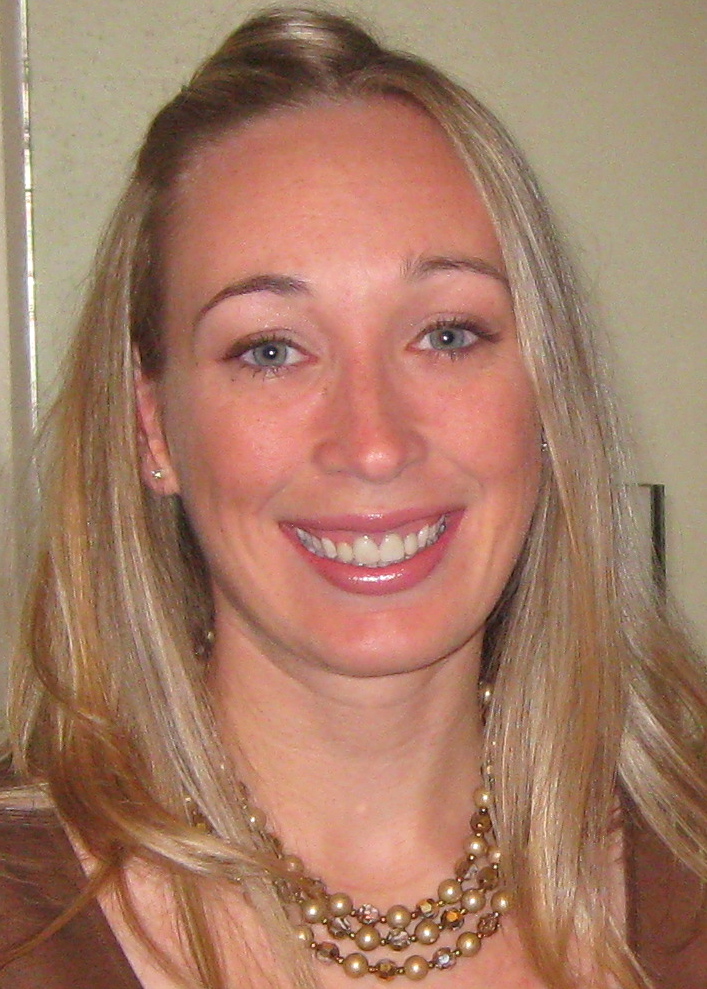 had the opportunity to intern with the state legislature and research education finance. I also studied comparative education policies within red and blue states and completed a senior research project in special education policy. I left the books behind to get a ground level perspective on education with the Teach for America program. I taught kindergarten and first grade in Houston, Texas, and was named my school’s Teacher of the Year in 2009. I have the opportunity, here at Michigan State, to combine my passion and experience to contribute to the field of education policy. As a fellow of the Economics of Education Program, I would like to research teacher labor market issues such as mobility and retention of teachers in high-need districts, effectiveness and impacts of teacher incentive-pay programs, and how accountability policies affect teacher motivation and success.
had the opportunity to intern with the state legislature and research education finance. I also studied comparative education policies within red and blue states and completed a senior research project in special education policy. I left the books behind to get a ground level perspective on education with the Teach for America program. I taught kindergarten and first grade in Houston, Texas, and was named my school’s Teacher of the Year in 2009. I have the opportunity, here at Michigan State, to combine my passion and experience to contribute to the field of education policy. As a fellow of the Economics of Education Program, I would like to research teacher labor market issues such as mobility and retention of teachers in high-need districts, effectiveness and impacts of teacher incentive-pay programs, and how accountability policies affect teacher motivation and success.
John Lane: MSU's Educational Policy Program has been the ideal program for me to learn and grow as a scholar. When I first came to the program, I had no real appreciation for the extensive work that thoughtful scholars had already done in my areas of interest. 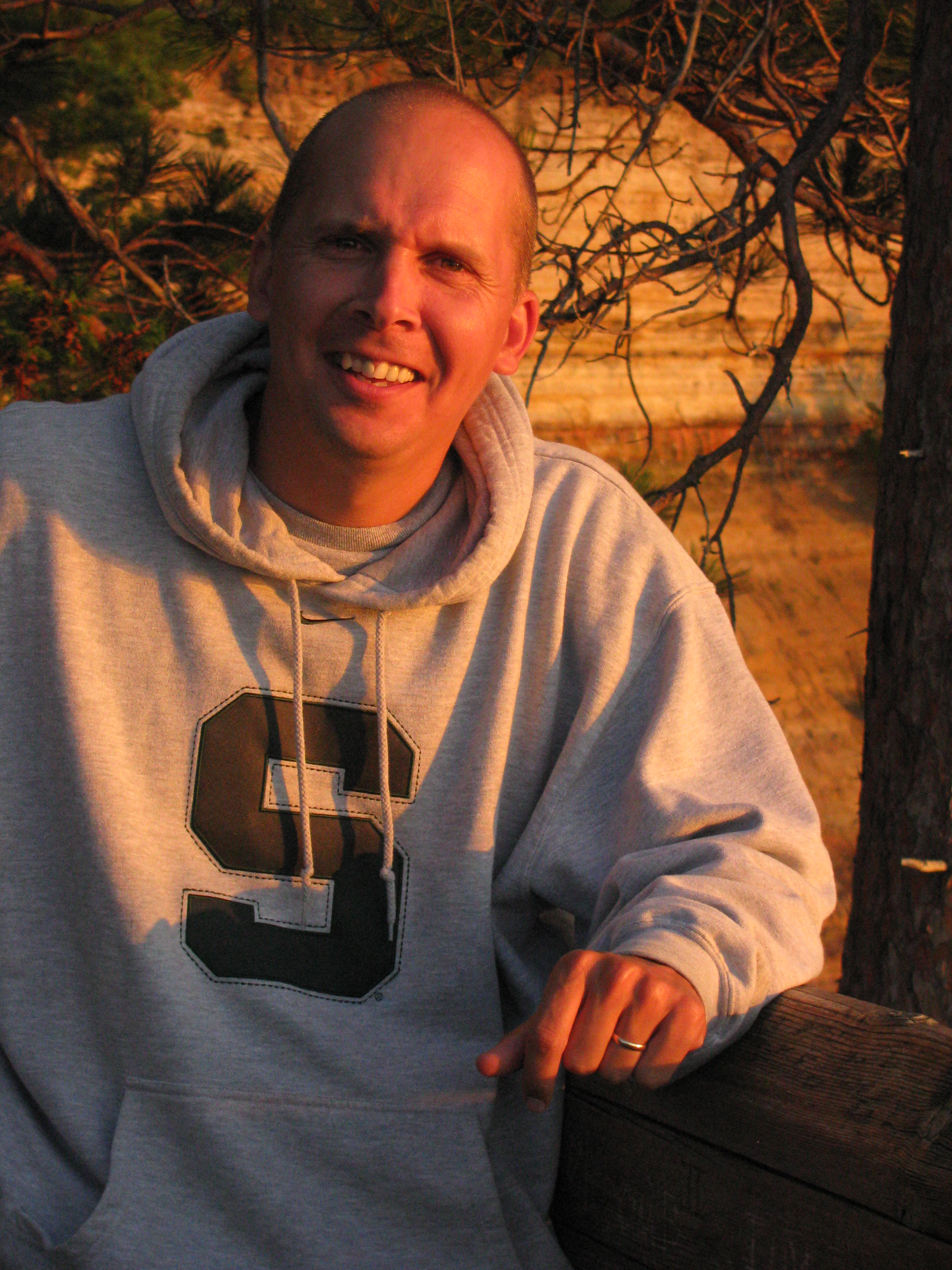 The reading in education I had done previously was geared toward more practical matters, reading that would help me in my various roles of teacher, administrator, professional development trainer, or consultant. The new reading I encountered in my first semester at MSU greatly shaped my future direction and, fortunately, the Educational Policy Program was able to meet my evolving interest and needs with its diverse and caring faculty, super-smart fellow students, and ongoing generous financial support. In fact, I have found the program to be an optimal blend of rigor and support and I couldn't be happier here. In addition to the university fellowship I was graciously awarded, the program also provides support for conferences and research expenses, as well as summer fellowships that have allowed me to pursue my own research when school is not in session.
The reading in education I had done previously was geared toward more practical matters, reading that would help me in my various roles of teacher, administrator, professional development trainer, or consultant. The new reading I encountered in my first semester at MSU greatly shaped my future direction and, fortunately, the Educational Policy Program was able to meet my evolving interest and needs with its diverse and caring faculty, super-smart fellow students, and ongoing generous financial support. In fact, I have found the program to be an optimal blend of rigor and support and I couldn't be happier here. In addition to the university fellowship I was graciously awarded, the program also provides support for conferences and research expenses, as well as summer fellowships that have allowed me to pursue my own research when school is not in session.
Alyssa Morely:: I studied anthropology and sociology as an undergraduate at Elon University. I then joined the Peace Corps in Malawi, Africa. 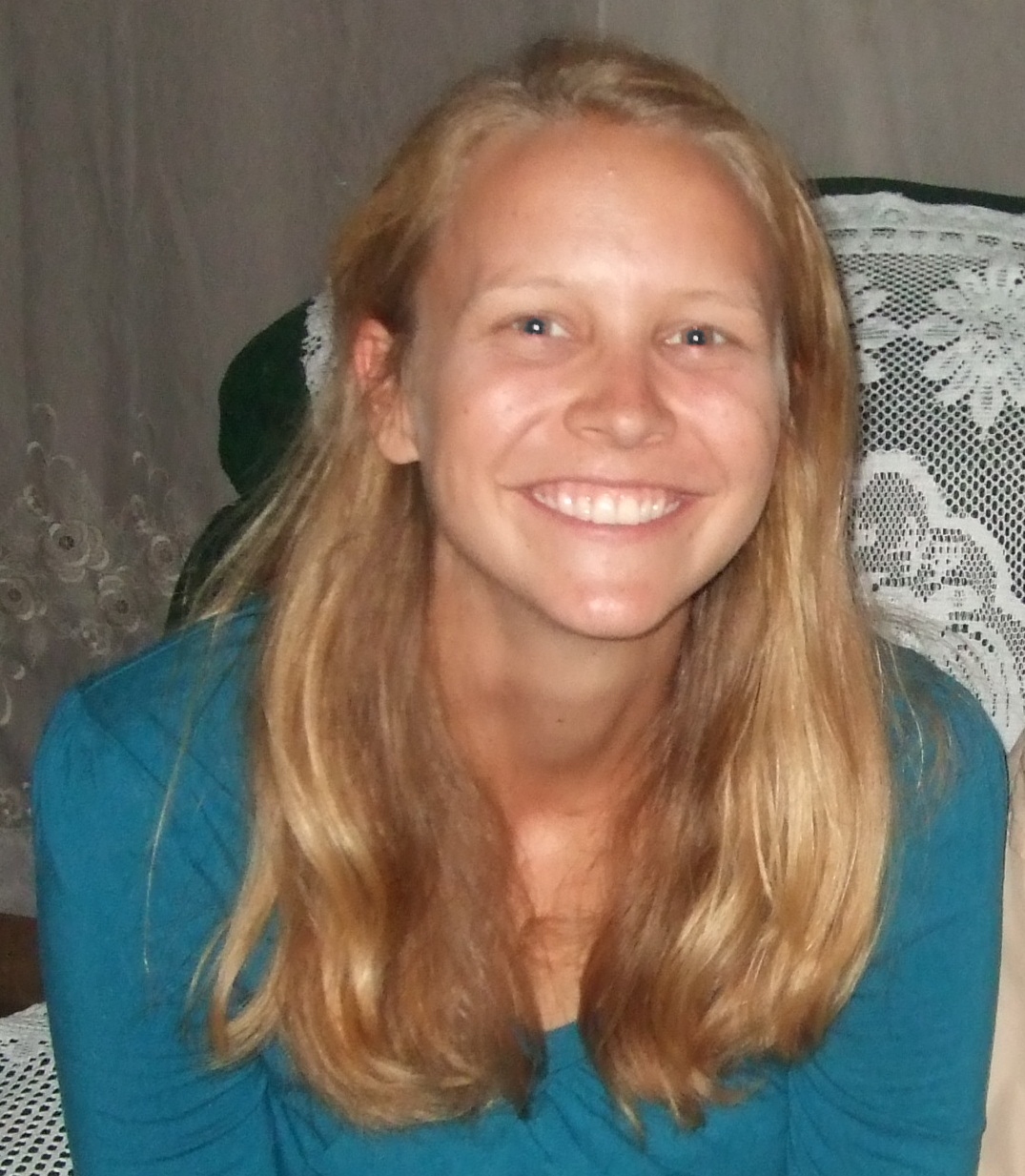 In Malawi, I taught secondary school science in a rural village. I was the only female teacher at my school, and I created and served as a mentor for a girls club. As a mentor to female students, I observed the salient obstacles young women confront when pursuing secondary education. A desire to understand how students navigate these obstacles, how parents make decisions about their children's schooling, and how teachers' support students compelled me to begin a graduate degree to explore these issues. MSU's Education Policy PhD program is enabling me to understand how various education actors interface and how policies shape their decision-making. I am supported by a University Distinguished Fellowship, and I am very grateful for this support and for the opportunity to engage with the interesting concepts and people that this program brings together.
In Malawi, I taught secondary school science in a rural village. I was the only female teacher at my school, and I created and served as a mentor for a girls club. As a mentor to female students, I observed the salient obstacles young women confront when pursuing secondary education. A desire to understand how students navigate these obstacles, how parents make decisions about their children's schooling, and how teachers' support students compelled me to begin a graduate degree to explore these issues. MSU's Education Policy PhD program is enabling me to understand how various education actors interface and how policies shape their decision-making. I am supported by a University Distinguished Fellowship, and I am very grateful for this support and for the opportunity to engage with the interesting concepts and people that this program brings together.
Kaitlin Obenauf: While earning a B.A. degrees in both Psychology and Economics at Michigan State University, I received awards for my paper discussing women and the gender gap in math and science. To give back to my community, I assumed leadership 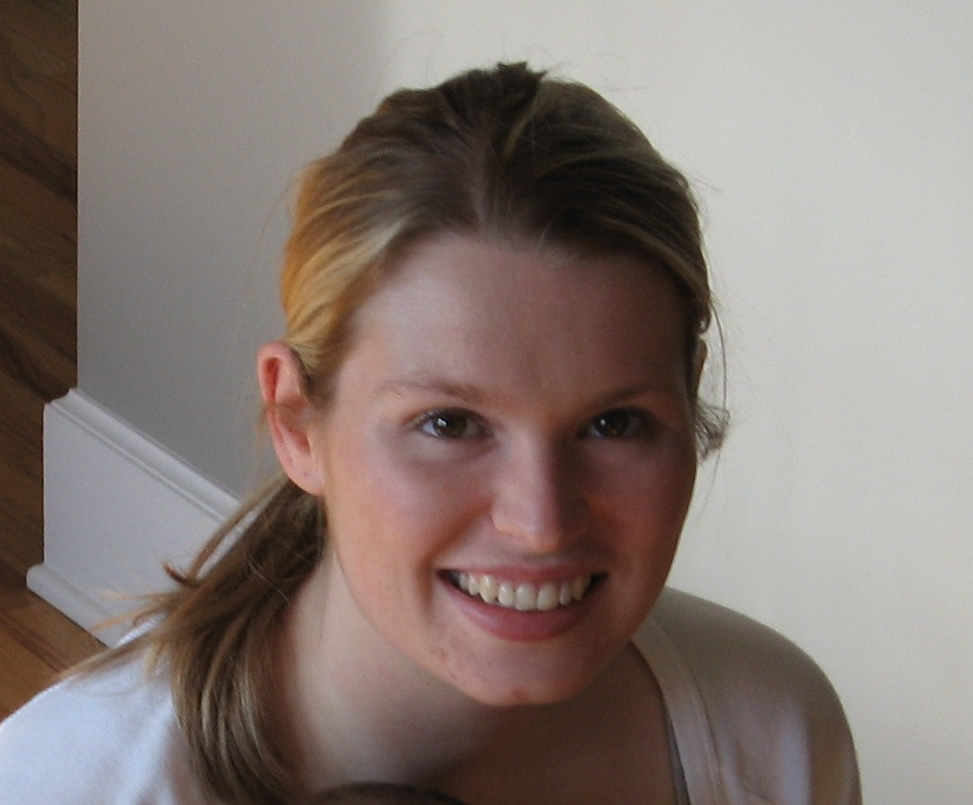 I taught second and third grade on Chicago’s south side for Teach for America. I assumed leadership roles in Chicago and secured grant funding for additional resources. Connecting learning to real world circumstances by instituting a classroom mini-economy, I helped raise my students’ reading and math achievement scores dramatically. I was granted two Segal Americorp Education Awards for national and community service in teaching. As a Dean’s Scholar in Educational Policy and a recipient of the new IES award in the economics of education at MSU, I am honored to belong to a community of scholars and hope to further my research on alternative certification, teacher preparation, and teacher culture and its affect on one’s job satisfaction.
I taught second and third grade on Chicago’s south side for Teach for America. I assumed leadership roles in Chicago and secured grant funding for additional resources. Connecting learning to real world circumstances by instituting a classroom mini-economy, I helped raise my students’ reading and math achievement scores dramatically. I was granted two Segal Americorp Education Awards for national and community service in teaching. As a Dean’s Scholar in Educational Policy and a recipient of the new IES award in the economics of education at MSU, I am honored to belong to a community of scholars and hope to further my research on alternative certification, teacher preparation, and teacher culture and its affect on one’s job satisfaction.
Dan Roberts: Upon graduating from Vanderbilt University, I worked at a middle school in the Chicago Public Schools,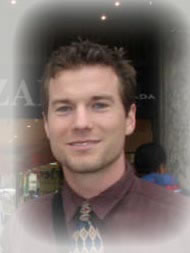 a teacher trainer and health facilitator in Guatemala with the Peace Corps and as an ESL teacher in Taiwan. I returned to Vanderbilt to earn a master's degree in International Education Policy and Management. After graduating, I worked for the Institute of International Education's Mexico City office as a researcher and administrator for its higher education scholarship programs. Before entering the education policy program as a Dean's Scholar at MSU, I conducted field research in the Lacandon jungle in Chiapas, Mexico about indigenous education reform in southern Mexico. With support from
Michigan State University's Summer Research Fellowship, currently I am conducting a study about community-driven education in Tanzania. My research interests include teacher training in developing nations, community-based education, gender issues in education and sustainability-based school curricula.
a teacher trainer and health facilitator in Guatemala with the Peace Corps and as an ESL teacher in Taiwan. I returned to Vanderbilt to earn a master's degree in International Education Policy and Management. After graduating, I worked for the Institute of International Education's Mexico City office as a researcher and administrator for its higher education scholarship programs. Before entering the education policy program as a Dean's Scholar at MSU, I conducted field research in the Lacandon jungle in Chiapas, Mexico about indigenous education reform in southern Mexico. With support from
Michigan State University's Summer Research Fellowship, currently I am conducting a study about community-driven education in Tanzania. My research interests include teacher training in developing nations, community-based education, gender issues in education and sustainability-based school curricula.
Andrew Saultz: As an undergraduate student at Oregon State University, I studied political science with a focus on state and federal educational policy. While President of the 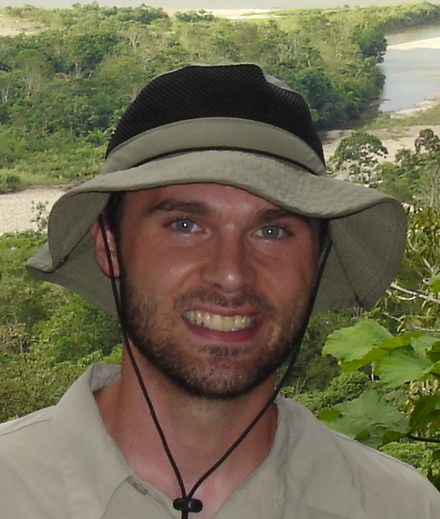 Associated Students of OSU, and Chair of the Oregon Student Association, I had the opportunity to serve as an ex-officio member of the Oregon State Board of Higher Education. This experience developed my passion for educational equity and community organizing. Following my graduation from Lewis and Clark College with a master’s degree in Teaching Social Studies, I taught high school social studies for three years in Okemos, Michigan. My interest in gaining a global perspective on education grew as I was blest with both the opportunity to teach in southern Poland and visit Ecuador on a Fulbright Group Program Abroad. I was attracted to MSU’s Educational Policy program because of the faculty expertise and the incredibly supportive community. The program has provided me with a summer research appointment, a seamless transition from my career as a teacher, and a number of unique educational opportunities. As a University Distinguished Fellow, my research interests include teacher collaboration, school accountability, the politics of education and curriculum design.
Associated Students of OSU, and Chair of the Oregon Student Association, I had the opportunity to serve as an ex-officio member of the Oregon State Board of Higher Education. This experience developed my passion for educational equity and community organizing. Following my graduation from Lewis and Clark College with a master’s degree in Teaching Social Studies, I taught high school social studies for three years in Okemos, Michigan. My interest in gaining a global perspective on education grew as I was blest with both the opportunity to teach in southern Poland and visit Ecuador on a Fulbright Group Program Abroad. I was attracted to MSU’s Educational Policy program because of the faculty expertise and the incredibly supportive community. The program has provided me with a summer research appointment, a seamless transition from my career as a teacher, and a number of unique educational opportunities. As a University Distinguished Fellow, my research interests include teacher collaboration, school accountability, the politics of education and curriculum design.
Rachel White: While pursuing my Bachelor's degree at the University of Michigan Ford School of Public Policy, I had the opportunity to take a K-12 Education Policy Seminar with Dr. Brian Jacob and Dr. Brian Rowan and quickly adopted their extreme passion for the field of education policy research.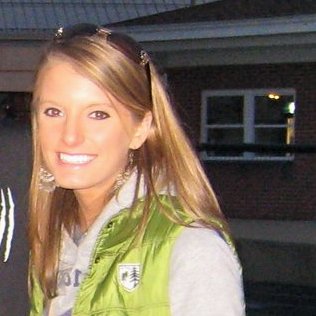 I chose to pursue a Master's Degree in Education Policy and Leadership from Ohio State University with a Master's Minor in Statistical Data Analysis. While studying in Columbus, I also served as the Director of Policy & Advocacy at The Ohio College Access Network where I spearheaded the first Ohio Student Education Policy Institute and the first Ohio College Access and Economic Opportunity Caucus. My interactions with policymakers in this position propelled me to apply to Michigan State University's Education Policy doctoral program. I was overjoyed upon being accepted to the program as a Dean's Scholar and am extremely thankful to be part of a program that provides an incredible amount of support and guidance to its students. My research interests include issues of education policy implementation, education governance structures, the historical trends of education policymaking and implementation, and the economics of education policy implementation.
I chose to pursue a Master's Degree in Education Policy and Leadership from Ohio State University with a Master's Minor in Statistical Data Analysis. While studying in Columbus, I also served as the Director of Policy & Advocacy at The Ohio College Access Network where I spearheaded the first Ohio Student Education Policy Institute and the first Ohio College Access and Economic Opportunity Caucus. My interactions with policymakers in this position propelled me to apply to Michigan State University's Education Policy doctoral program. I was overjoyed upon being accepted to the program as a Dean's Scholar and am extremely thankful to be part of a program that provides an incredible amount of support and guidance to its students. My research interests include issues of education policy implementation, education governance structures, the historical trends of education policymaking and implementation, and the economics of education policy implementation.
Sarah Winchell: I am supported in the Educational Policy program by a Dean’s Scholar Award, along with grants, fellowships, and annual stipends to attend education conferences. I have a B.A. in English and Women's Studies from the University o f Georgia and a M.S. in Teaching from Pace University in New York City. I most recently lived in New York City where I was a middle school English teacher in Brooklyn (as part of Teach for America) and a coordinator of a high school enrichment program. My current research focuses on teacher performance evaluation, teacher pay, and the effects of standardized testing on teachers and students. I won a 2009 Summer Research Fellowship to support my work on the effects of using value-added methodology to measure teacher performance. I have an assistantship with Professor Rebecca Jacobsen, with whom I have worked on research related to student citizenship outcomes and school segregation's relationship to political and civic participation. I also served as an intern in the Michigan Department of Education's Office of Professional Preparation, where I worked on a teacher preparation standards alignment project.
f Georgia and a M.S. in Teaching from Pace University in New York City. I most recently lived in New York City where I was a middle school English teacher in Brooklyn (as part of Teach for America) and a coordinator of a high school enrichment program. My current research focuses on teacher performance evaluation, teacher pay, and the effects of standardized testing on teachers and students. I won a 2009 Summer Research Fellowship to support my work on the effects of using value-added methodology to measure teacher performance. I have an assistantship with Professor Rebecca Jacobsen, with whom I have worked on research related to student citizenship outcomes and school segregation's relationship to political and civic participation. I also served as an intern in the Michigan Department of Education's Office of Professional Preparation, where I worked on a teacher preparation standards alignment project.




